The Women of Washburn Law: Taking Care of Business
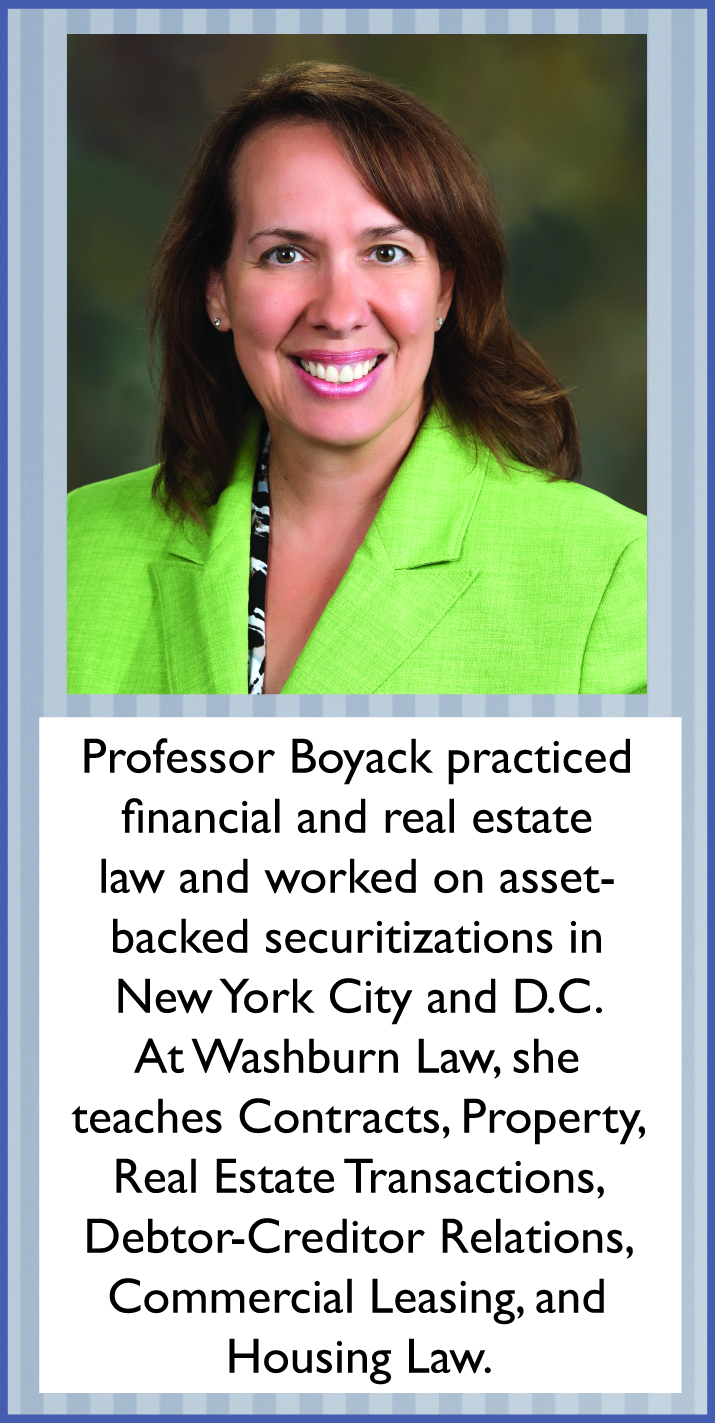 |
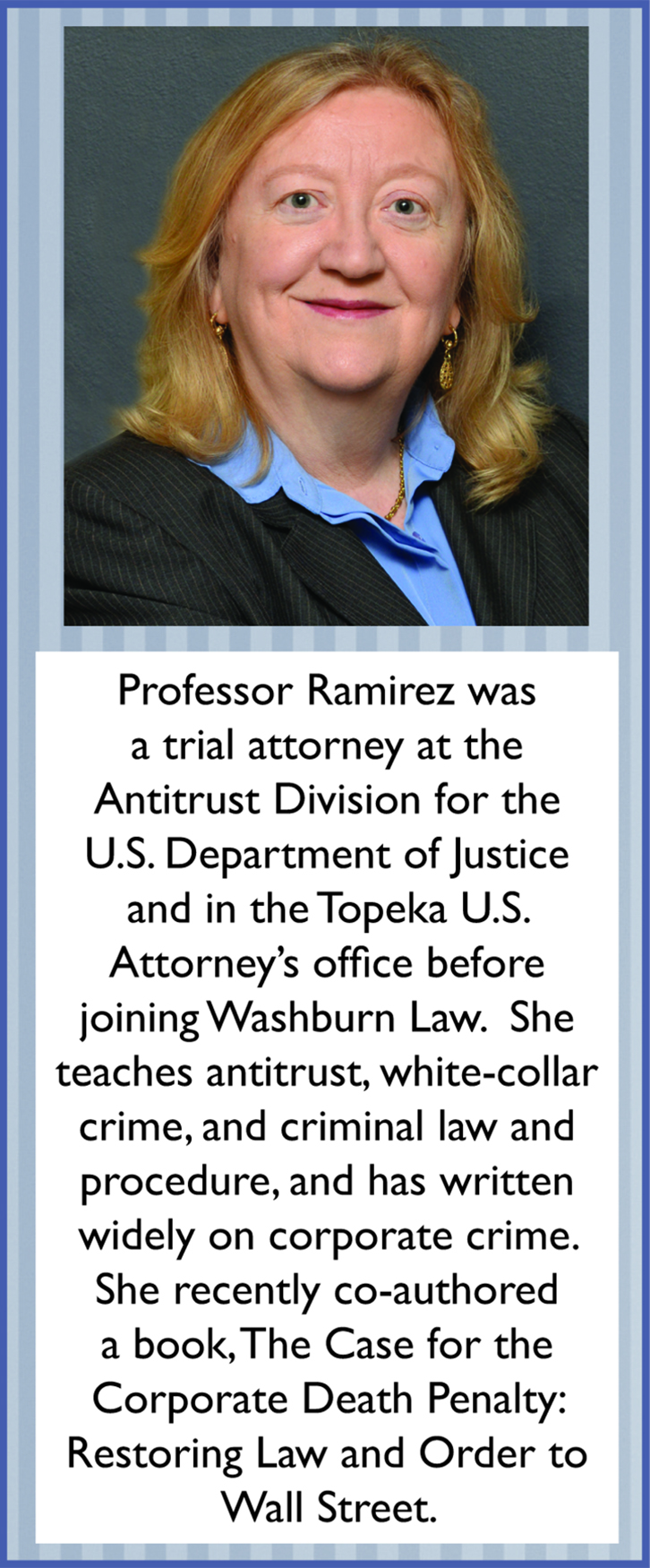 |
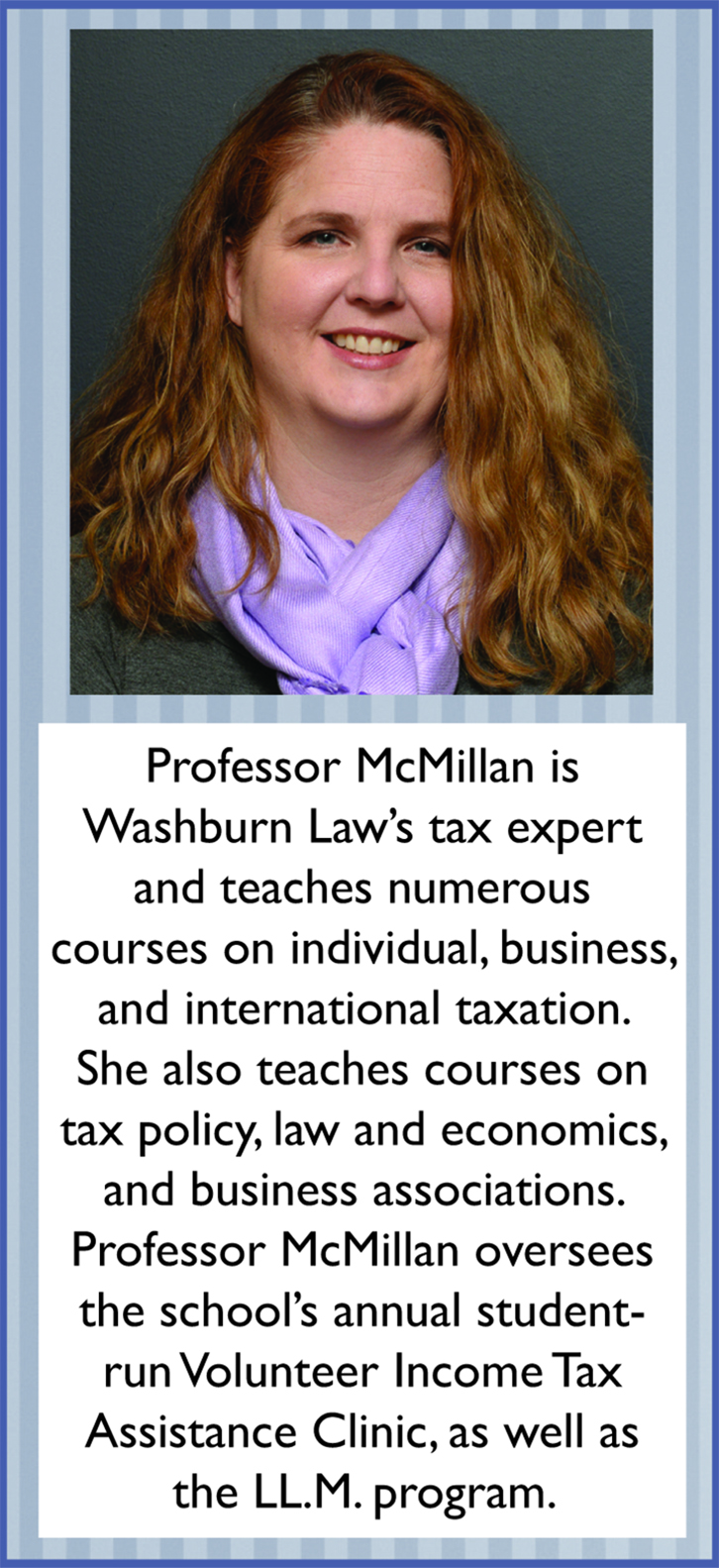 |
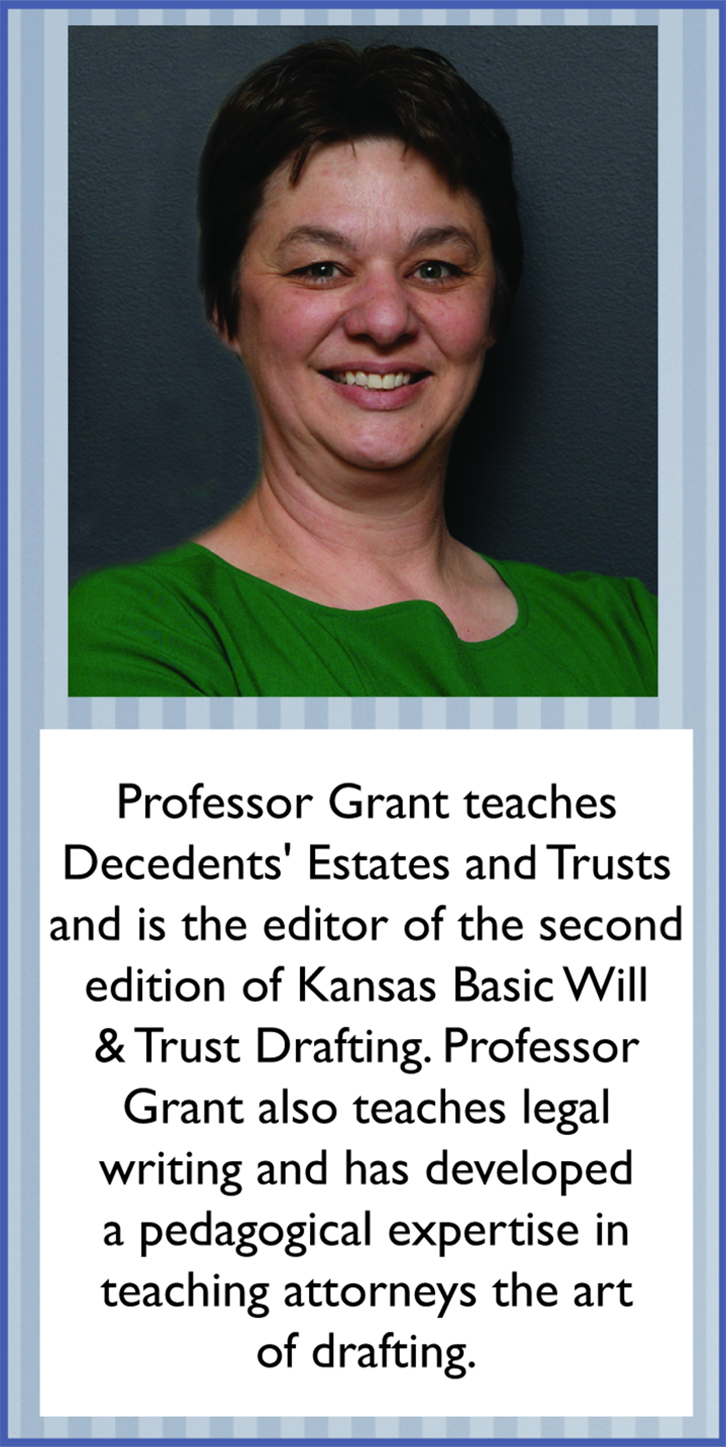 |
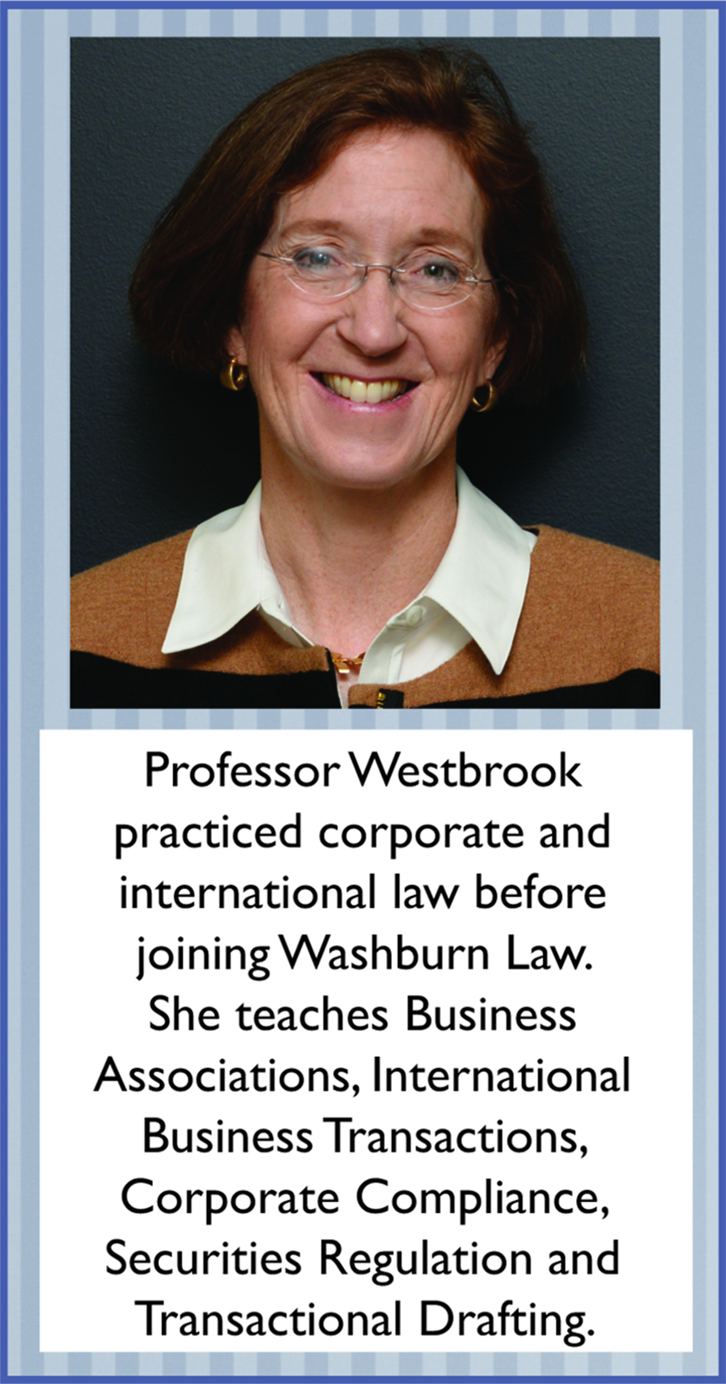 |
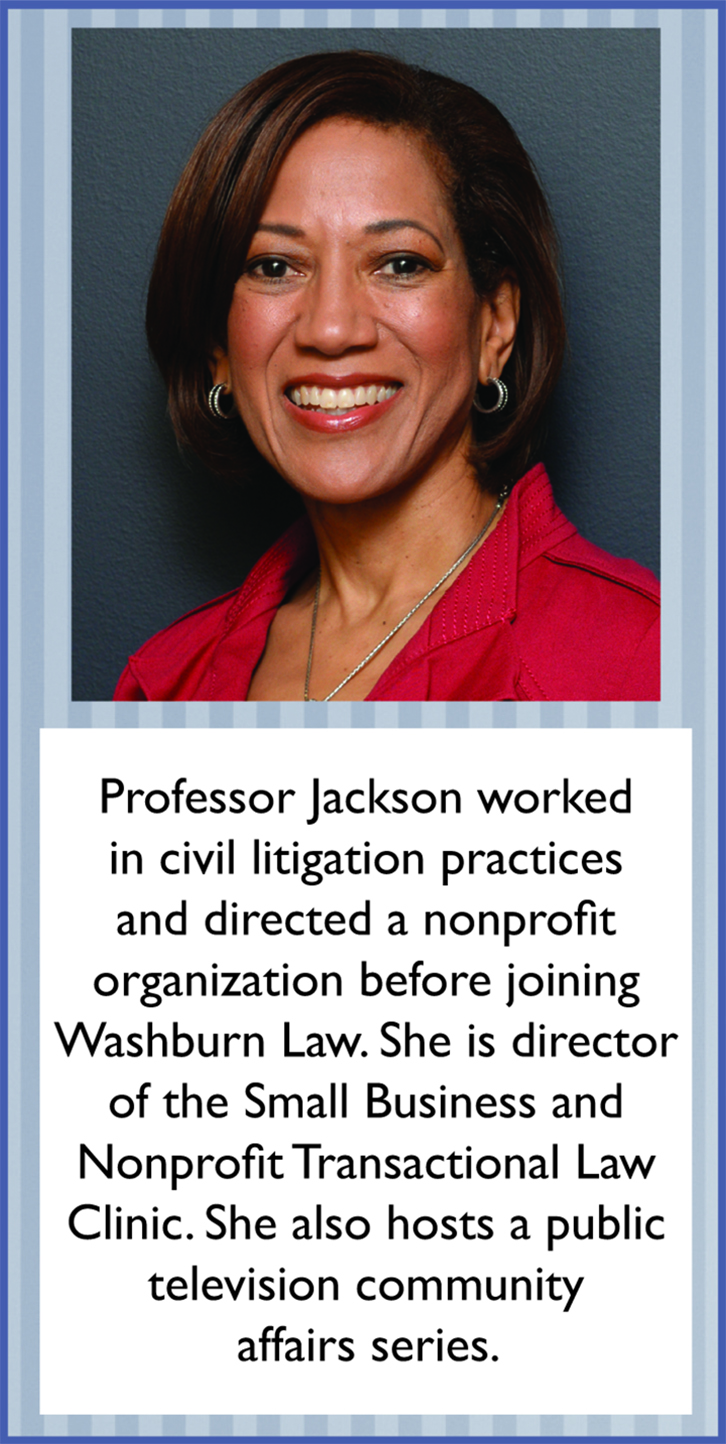 |
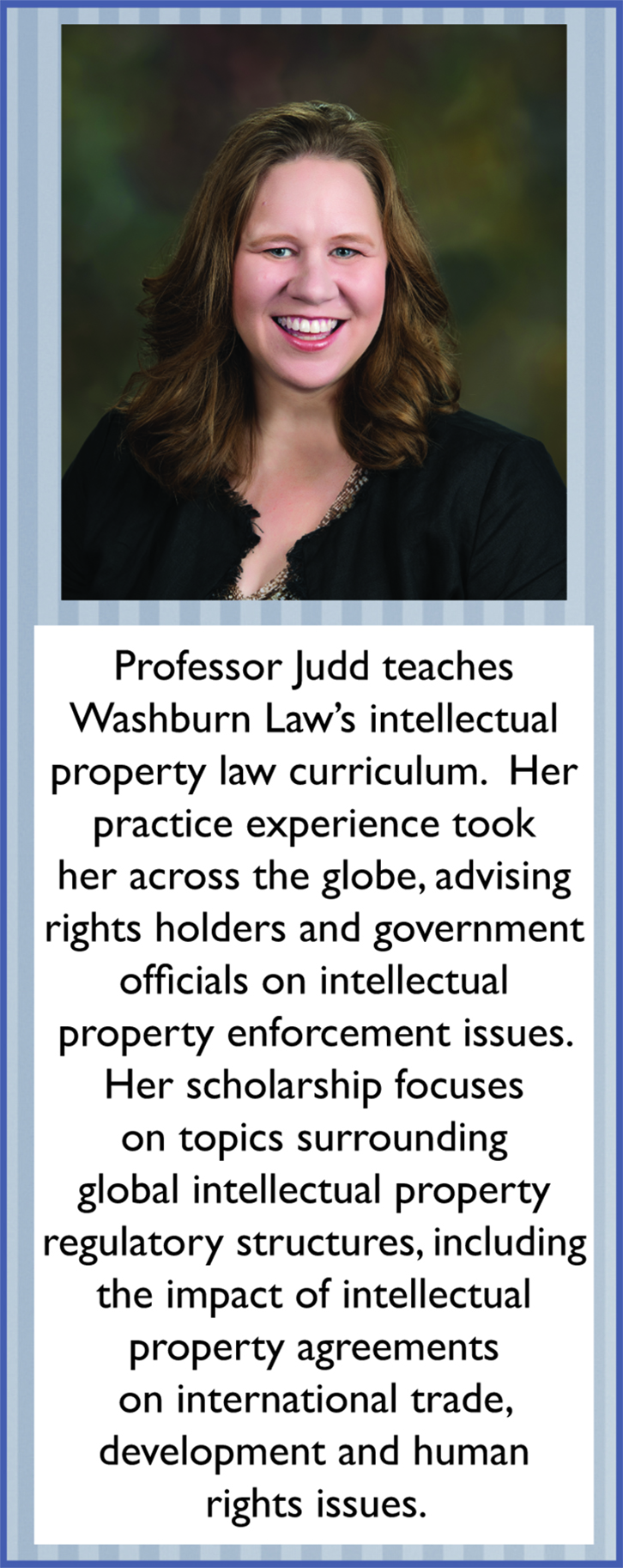 |
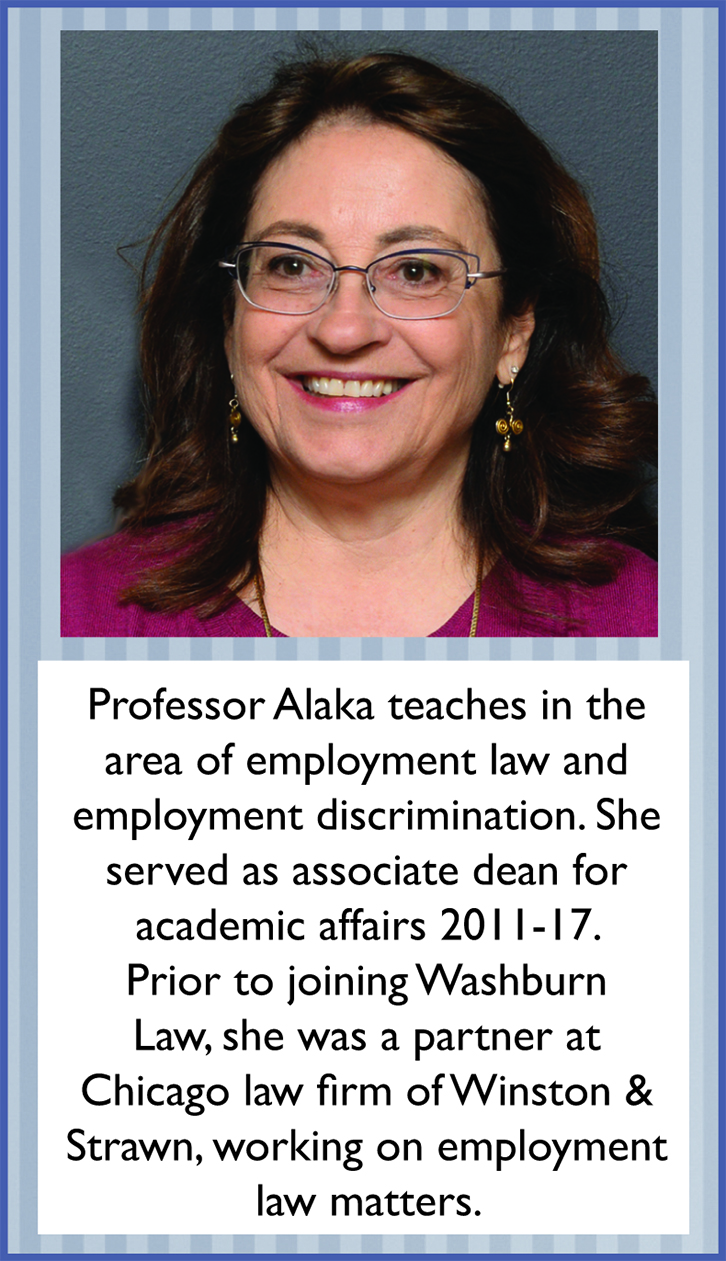 |
“Just go to the closing of a deal and look around the room. You'll see — it's all men,” said Professor Amy Deen Westbrook, co-director of the Business and Transactional Law Center at Washburn University School of Law. Westbrook and her co-director, Professor Andrea J. Boyack, lead a team of strong female law professors at Washburn Law who model and teach a new generation of lawyers how to thrive in this male-dominated field.
Women striving to succeed in transactional law have long battled stereotypes that deal-making and finance are “boy's games” in “a man's world.” Law firms periodically claim that women lack the temperament to “hunt big game” in corporate America. But the idea that women cannot be aggressive and effective corporate lawyers is “an outdated myth,” Boyack says. “In transactional practice, you’re trying to achieve a ‘win-win.’ You’re trying to put together a deal — to imaginatively solve issues and negotiate. And many women are particularly skilled in this area – they have the creativity and the communication and people skills to excel.” Boyack and Westbrook both believe that their teaching and example can help inspire would-be transactional attorneys studying at Washburn Law.
Professors Boyack and Westbrook bring to Washburn Law their more than 20 years combined experience in corporate law practice in New York City and Washington, D.C. Before turning to academia, Boyack spent over a decade doing structured finance, securitization, acquisitions, and real estate financing in some of the most prestigious national law firms. She also served as in-house counsel to a Fortune 500 company. Westbrook spent years structuring and negotiating international transactions, including project finance, acquisitions, joint ventures, and trade arrangements, representing both companies and sovereign nations. Their practical-oriented approach to business and transactional law has raised the profile of Washburn Law and has increased the level of preparation of its graduates.
“It's very different from when we went to law school. When our students graduate, they've already seen a contract, they’ve already seen what the deal looks like, and what the paperwork looks like,” said Westbrook. “We're not just explaining the business concepts, we're showing them what the transactions look like — helping them to be fully equipped to get to work after school.”
PreLaw Magazine recently recognized Washburn Law as among the top schools in the nation in transactional legal education. Washburn Law was one of just 17 schools to receive the top ranking of “A” for its program of Business and Corporate Law and was one of 11 schools to receive an “A-“ ranking in Taxation Law. PreLaw noted that the competition in the area of business and corporate law is particularly strong, as more schools offer concentrations in that area than any other specialty. Among the many reasons for Washburn Law's high marks in this area: the breadth and quality of its transactional and business law curricular offerings and the Law School's Small Business & Nonprofit Transactional Law Clinic. The Transactional Law Clinic is an integral part of the Business and Transactional Law Center and is the only transactional law clinic in the state. The Transactional Law Clinic is also headed by a strong female attorney, Professor Janet Thompson Jackson.
Jackson is another Washburn law professor who brought to the Law School well over a decade of law practice experience.
According to Boyack, the female faculty is helping to set a model for female attorneys to consider business and transactional law by showing that women can excel in this area and are, in many cases, naturally suited to practice in business and transactional law. Half of the nation's attorneys focus on transactional work, so creating pathways to this type of legal practice helps prepare law students for the real world and broadens their opportunities.
In addition to helping interest students in transactional legal work and preparing them for law practice, Washburn Law's women who are “taking care of business” also model work-life balance that makes a career in the law sustainable. Sustainability of a law career is challenging, particularly for women. Women today are more than twice as likely to leave their firms seeking better work-life balance. But all eight of Washburn Law's female business law professors model a professional life that includes both work and family. “We all have kids, and we're all showing that, yes, it is hard, but that you can balance both career and family,” said Boyack. “It used to be that you had to make a choice. But the world is changing, and we're helping to give it a nudge.”